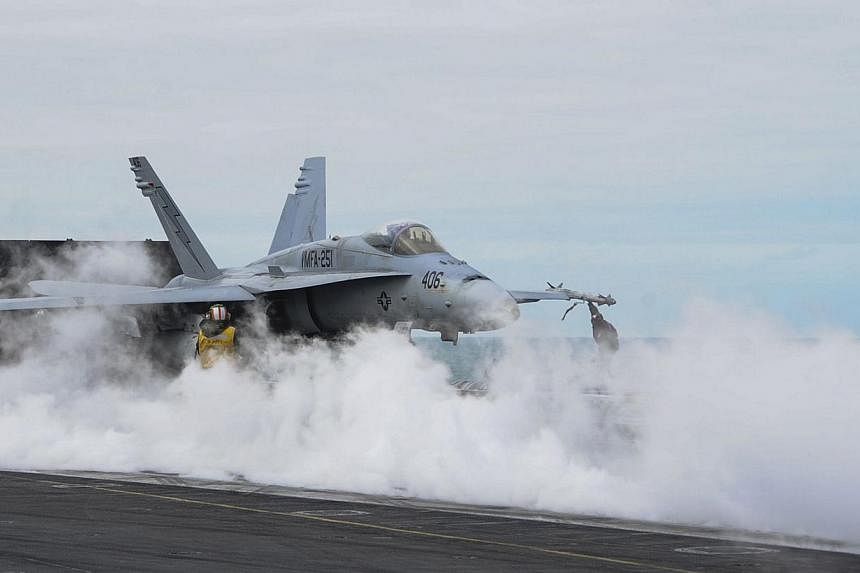BEIJING (Reuters) - China's Foreign Ministry expressed anger on Thursday after two U.S. fighter jets landed in Taiwan, in a rare official contact between the militaries of the United States and the self-ruled democratic island.
Taiwan's Central News Agency said the two F-18s landed at an air force base in southern Taiwan on Wednesday after experiencing mechanical problems. It said it was not clear where they were coming from or where they were going.
"We have already made solemn representations to the US side," China's Foreign Ministry spokeswoman, Hua Chunying, told a regular news briefing. "China demands that the United States strictly abide by the 'one-China policy' ... and cautiously and appropriately handle this incident."
Mr Mark Zimmer, spokesman of the American Institute in Taiwan, the US de facto embassy, said yesterday the jets had taken off from a US base in Japan and were "going to a training exercise in Southeast Asia", Taiwan's Central News Agency reported. He declined to offer more specifics.
The United States is obligated to help Taiwan defend itself, under the Taiwan Relations Act of 1979, when Washington severed formal ties with the island to recognise the People's Republic of China in Beijing.
US weapons sales in recent years to Taiwan, or indeed any formal contact between the two armed forces, have provoked strong condemnation by China, but have not caused lasting damage to Beijing's relations with either Washington or Taipei.
China views Taiwan as a renegade province and has not ruled out the use of force to bring it under its control.
While Taiwan and China have signed a series of landmark trade and economic agreements since 2008, political and military suspicions still run deep, especially in democratic Taiwan, where many fear China's true intentions.
China's military modernisation has also been accompanied by a more assertive posture in its regional territorial disputes.

